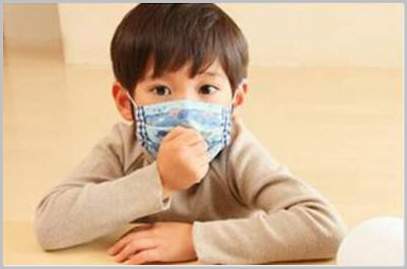
Pneumonia symptoms
Pneumonia symptoms vary depending on the cause. For example:
Bacterial pneumonia can come on gradually or suddenly. In the most severe cases, patients may experience shaking chills and chattering teeth, signs of a high fever, perhaps with moderate to severe chest pain, and a cough that produces rust-colored sputum (thickened fluid and mucus) from the lungs.
Viral pneumonia symptoms initially resemble influenza (flu): fever, dry cough, headache, muscle pain and weakness. After 12 to 36 hours, patients become increasingly short of breath. The cough becomes worse, and a small amount of mucus is produced. Fever may also worsen, and as breathing becomes more difficult, a patient’s lips may turn blue (cyanosis). In extreme cases, a bacterial infection may also develop, adding symptoms of bacterial pneumonia as well.
Mycoplasma pneumonia causes a severe cough that tends to come in violent attacks, producing a small amount of whitish sputum or mucus. Chills and fever appear early in the illness, and some patients experience nausea or vomiting. The symptoms and course of mycoplasma infections are highly variable. It may simulate strep throat or produce nothing more than a prolonged, annoying cough. Some experts believe that it may be an important cause of severe and prolonged attacks in individuals with asthma. Patients may feel very weak for a long period of time.
Bronchitis symptoms

The hallmark symptom of bronchitis is a wet or dry cough, which may cause chest pain. Breathing may become difficult, and accompanied by burning in the chest, and wheezing or rattling in the throat. Exertion may cause shortness of breath. It is important to consider the possibility that asthma may be the cause of the cough, especially if wheezing and shortness of breath with exertion are prominent.
Patients may feel very tired and have a low-grade fever. Sputum may be clear, white, gray, yellow or green.
Procedures
You should see your doctor for any symptoms that last more than a few days. You should also see a doctor if fever rises, or if chest pains become severe.
Diagnostic tests may include a chest X-ray to locate infected areas in the lungs or airways. Blood tests may be done to help determine the cause and severity of the infection. In some cases, the doctor will take a laboratory culture of the mucus produced by coughing. Cultures can help determine the type of bacteria causing the infection, and the most effective antibiotics to use against it.
How Are Pneumonia and Bronchitis Treated?
If their disease is detected early enough, most people with pneumonia or bronchitis can be treated at home. Early treatment is essential in order to prevent life-threatening complications. These serious cases generally require hospitalization.
Pneumonia treatment
In young and healthy patients, early antibiotic treatment can cure bacterial pneumonia and can improve recovery from other organisms (mycoplasma, rickettsia) but there is no effective treatment for viral pneumonia. Which drugs are used will depend on the type of organism causing the infection and your doctor’s judgment.
Supportive treatment includes: proper diet, oxygen when needed, medication for chest pain and therapy to relieve cough.
A vigorous young person may recovery completely within one week. Older patients take longer (several weeks) to recover. Someone recovering from mycoplasma pneumonia may be weak for an extended period of time.
Bronchitis treatment
The most effective way to treat bronchitis is to get lots of rest, stay indoors if the weather is cold and windy and drink lots of fluid to help liquefy mucus. Mucus should be coughed up; so avoid using cough suppressants.
Your doctor may prescribe or recommend an expectorant medication (mucolytics) to help loosen mucus, or bronchodilators (albuterol) to open air passages. Older people, who generally have lower resistance to bacterial infection, may need to take antibiotics.
Supportive treatments include: rest, staying indoors if weather is bad, increased humidity (cool mist humidifier) to soothe air passages, and increased fluids to avoid dehydration and thin out mucous secretions.
Symptoms usually disappear within seven to 10 days in patients with no prior chronic pulmonary disease, however, some cases of viral bronchitis may take several weeks to completely resolve, especially in smokers and asthmatics.

